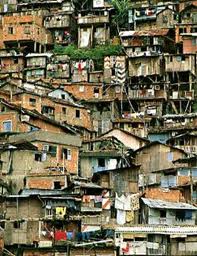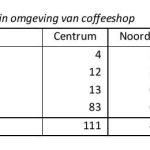Attie S. van Niekerk – The Broken Circle: The Prevalence of Fear in Low-Cost Housing in South Africa
No comments yet The South African township is characterised by low-cost houses as well as the so-called ‘shack’ that consists of corrugated iron, plastic and cardboard. In several research projects high levels of fear have been encountered among residents of these low-cost houses, in both rural and urban contexts (Holm, Murray and Pauw, 2005).
The South African township is characterised by low-cost houses as well as the so-called ‘shack’ that consists of corrugated iron, plastic and cardboard. In several research projects high levels of fear have been encountered among residents of these low-cost houses, in both rural and urban contexts (Holm, Murray and Pauw, 2005).
The high levels of fear among residents of low-cost housing present us with a combination of problems of a technical, socio-cultural and religious nature. Modern science, as it has developed since the time of the European Renaissance, has not been very successful in addressing this type of problem. Modern science has been remarkably successful in unlocking the secrets of nature and in utilising the potentialities of nature, through a strong emphasis on the superiority of reason. But this emphasis has had a reverse side: scientists tended to dismiss all the non-rational, yet vital elements of human life and reality, such as the destiny of humanity, human freedom and spontaneity (Prigogine and Stengers, 1984: 34-5).
From early on, African writers have pointed out that the rationalism of Western culture – also of Western missionaries – was alien to the African experience. Africans combine political, cultural and religious resistance to Western rationalism; maybe because Western rationalism seems to be closely associated with the desire to control and dominate. Such resistance can be traced back to African writers early in the twentieth century.
African writers have repeatedly pointed out that there are important differences between Western and African thought patterns: in African tradition, causality may be understood in a magical way, because spirit permeates the whole universe to such an extent that the self and the world, mind and matter interpenetrate each other and cannot be distinguished (Anyanwu, 1984: 87-93); Ibe Nwoga (1976: 17-8, 21) contrasts traditional Western man’s more detached, analytical mode of understanding with traditional African man’s more holistic, instinctive mode of understanding.
In this essay I will argue that the prevalence of fear in low-cost housing is a result of the dysfunctional interaction between the modern, Western or global worldview and the traditional African worldview. The different worldviews meet, interact and combine in the household (household can be seen as a micro-system formed by numerous elements that interact and combine to form a whole, showing properties that are properties of the whole, rather than properties of its component parts), and the end result is a rather chaotic manifestation in the household: in the architecture, the social relations, and the interpretation of illness. These aspects are so intertwined that an architectural problem (how to design an energy-efficient house) is related to a religious problem (why do Christians fear that witches will fly through the window?) or maybe to a psychological problem (is such fear a function of conflict with other people?).
Read more: http://rozenbergquarterly.com
You May Also Like
Comments
Leave a Reply





